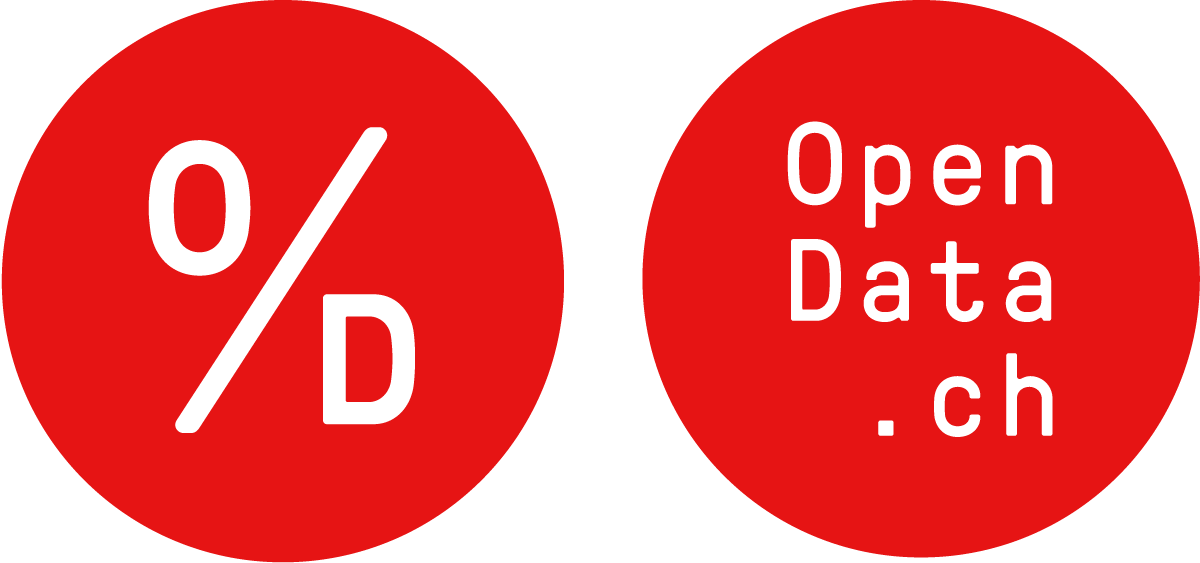‘Local Sustainability Booster’ & 5 other projects from the Energy & Climate Hack
- Climate
- Energy
- Hackathon
How did we use Open Data to work on tangible solutions to our global sustainability challenges? Let’s take a look!
It has been a long, COVID-shaped story to prepare for this particular event. After moving the date twice and finally deciding to hold it online to keep our international guests on board, we could finally do it: the Energy and Climate Hack took place at the end of August 2021!
From our broadcasting headquarters – installed in the offices of our partner Swisspower in Bern – Andrea, Oleg and Maud launched the event by engaging with 38 highly qualified, joyful and motivated participants. While we definitely missed meeting in real life and the enrichment of the teams cross-pollinating, within the bubble of the virtual teams, the interactions were just as vivid and productive as we are used to. Six of the challenges were tackled by this virtual assembly and led to impressive results, as will be summarized below.
Decarbonizing cities is a very ambitious task. While some of the steps towards it are clear, the majority are less so. However, some of the factors that they all have in common is that they 1) involve an evaluation of where we stand, 2) an ongoing coordination and collaboration with different actors to draft and implement solutions as well as 3) tools for civilians, administrations and companies to act on problems at both an individual and a collective level. All the challenges that were presented focused on at least one or more of these aspects. We are looking forward to the developments of the prototypes presented at the end of the 36 hours of intensive work and hope that they will see the scaling up that they deserve.
Please find below a short overview of the projects and click on the links for more information and the presentations of the pitches.
NEST – a Data-driven Building Model
In order to reduce CO2 emissions of buildings, the control of the heating and cooling systems needs to be improved. Due to thermal inertia within buildings, the control requires an accurate prediction model. The group improved the statistical modelling of the correlations between building controls and resulting room temperatures by training a machine-learning algorithm to maintain a target temperature. https://github.com/WolframWilluhn/ENRGCLIM21_04_NEST
Wärmcity Bern
This group created the prototype of an app visualizing the heat spots in the city, based on the data collected by the Institute of Geography of the University of Bern. They then began to address the more technical part of the challenge: Developing a transfer function to correct for the estimated radiative bias of each station of the monitoring network.
https://github.com/matthme/heat-spots-berne
Vertical Farms
This group investigated the advantages and disadvantages of different locations in Switzerland to assist with the decision process to find a suitable location for a vertical farm.
As an extension, they conceptualized an interactive map of Switzerland, where users are able to filter for the factors they themselves consider most relevant, and adjust the weight of each factor in order to calculate a final score for the considered locations.
Local Sustainability Booster
What are the key factors influencing sustainable development at a community level leading to more PV, electric cars and renewable heating? This group was able to gather and visualize different sets of data and run different statistical models to describe the relationship between demographic features and renewable behaviours. Their first conclusions will help optimize and target communication about renewable energy.
https://github.com/DangerousDyl/local_sustainability_booster
Governance of DLT 4 Financing Blockchain
Blockchain networks have to be properly designed and managed. Therefore this group worked on a stakeholder analysis, a Value Flows Diagram and worked on the Ecosystem Governance in the context of a blockchain network based on Elinor Ostrom’s 8 principles for managing a commons.
https://github.com/e-swissolar-AG/ReFi
Cool urban spaces
This group initially worked on an application to formulate and realize suggestions to improve climate and living conditions in a given neighborhood. They then went on to consider the more general issue of contacting owners for necessary energetic renovation matters or in order to gather property information to measure progress.
https://github.com/lbuchli/cool_urban_spaces_backend
To be the first to hear about next year’s event, sign-up to our newsletter!
